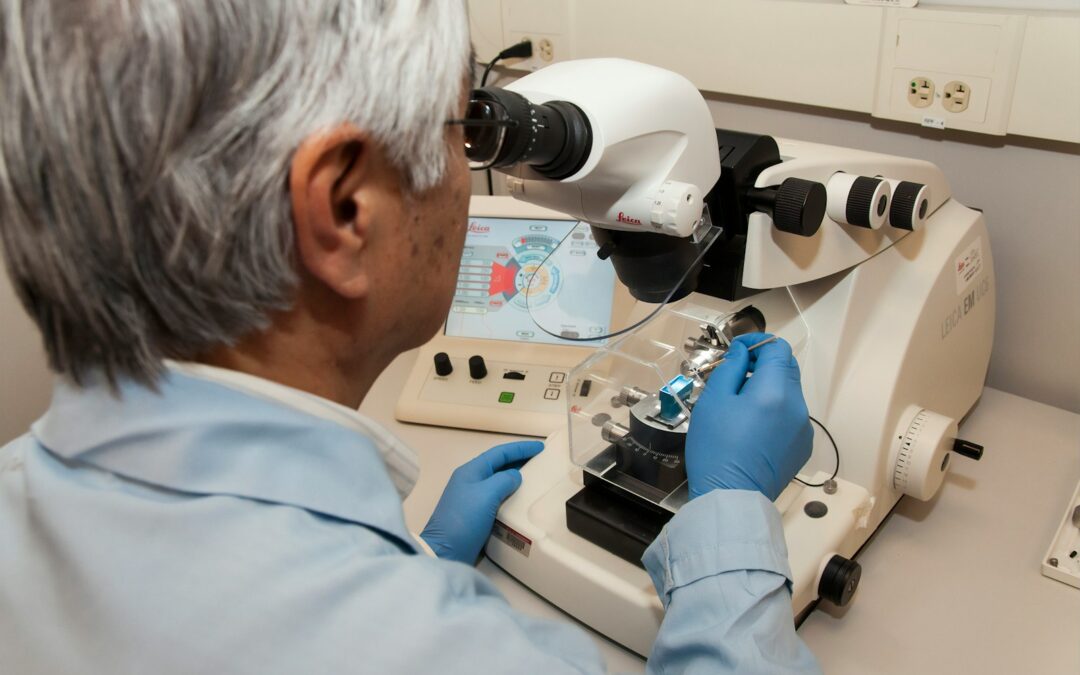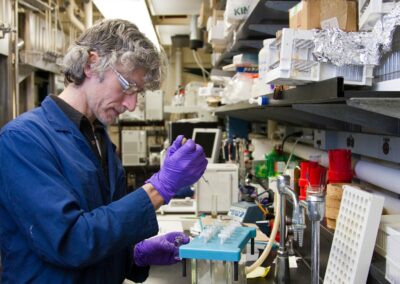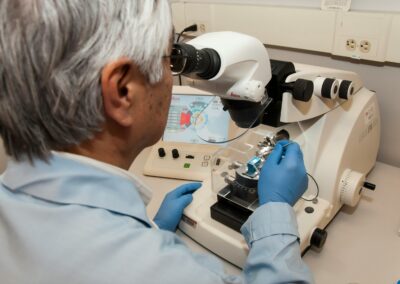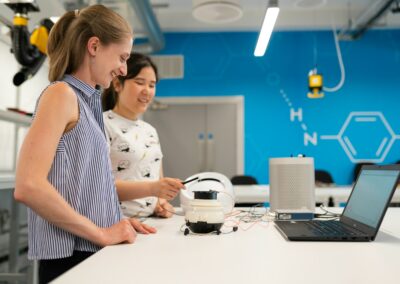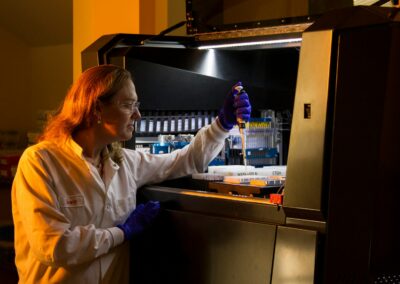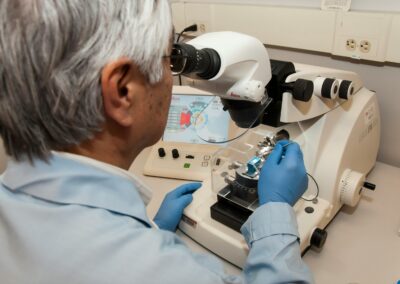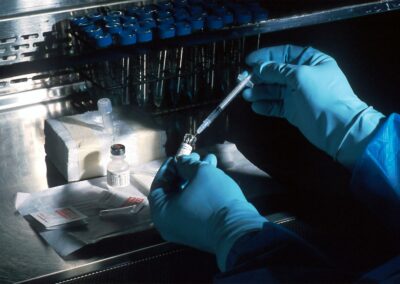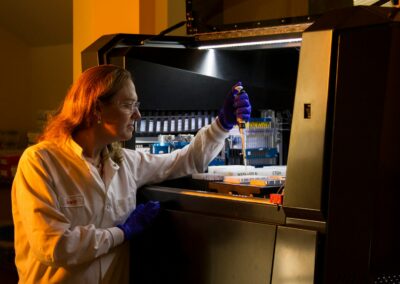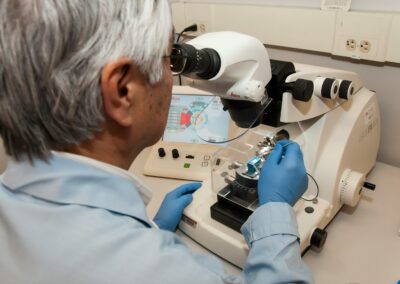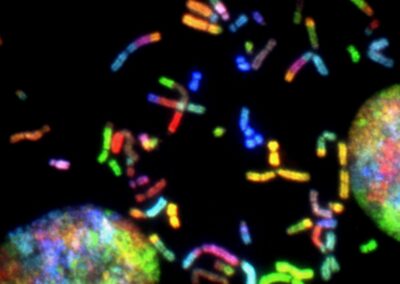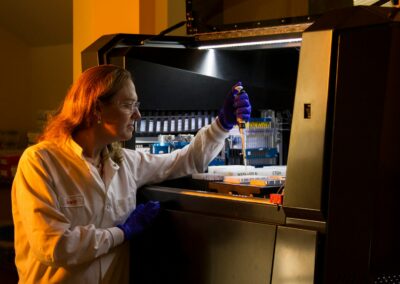Advancements in Genetic Engineering: Revolutionizing Biopharmaceuticals
Enhanced Production of Therapeutic Proteins
Recent developments in genetic engineering have significantly enhanced the production of biopharmaceuticals and therapeutic proteins. By leveraging advanced gene-editing technologies such as CRISPR-Cas9, scientists can now precisely modify the genetic makeup of microorganisms and mammalian cells used in the production of these vital medical substances. This precision has led to increased yields, improved efficacy, and reduced production costs, making biopharmaceuticals more accessible to patients worldwide. In regions like Saudi Arabia and the UAE, where healthcare innovation is a priority, these advancements are paving the way for new treatment possibilities and economic growth.
One of the most significant benefits of genetic engineering in biopharmaceuticals is the ability to produce complex therapeutic proteins that were previously challenging to manufacture. Proteins such as monoclonal antibodies, which are crucial in treating various cancers and autoimmune diseases, can now be produced more efficiently and in larger quantities. This not only enhances the availability of these life-saving treatments but also allows for the development of new drugs tailored to specific genetic profiles, heralding a new era of personalized medicine. For business executives and entrepreneurs in the biotechnology sector, this represents a substantial opportunity for investment and innovation.
Moreover, the integration of Artificial Intelligence (AI) and machine learning with genetic engineering processes has further accelerated the development of biopharmaceuticals. AI algorithms can analyze vast datasets to identify optimal genetic modifications and predict the outcomes of genetic interventions. This synergy between AI and genetic engineering not only streamlines the drug development process but also ensures higher accuracy and safety in the production of therapeutic proteins. In Riyadh and Dubai, where technological adoption is swift, these advancements are being harnessed to position the regions as leaders in the global biopharmaceutical industry.
Economic and Healthcare Implications
The economic implications of advancements in genetic engineering for biopharmaceutical production are profound. By enhancing production efficiency and reducing costs, genetic engineering contributes to the affordability and accessibility of biopharmaceuticals. This is particularly significant for the healthcare systems in Saudi Arabia and the UAE, which are committed to providing high-quality medical care to their populations. The ability to produce biopharmaceuticals domestically also reduces dependence on imports, fostering self-sufficiency and economic resilience in these regions.
Furthermore, the biopharmaceutical industry presents lucrative opportunities for economic diversification, a key objective for both Saudi Arabia and the UAE. Investment in genetic engineering and biotechnology can stimulate job creation, attract international partnerships, and drive research and development initiatives. For mid-level managers and entrepreneurs, the biopharmaceutical sector offers a dynamic landscape for growth and innovation. By capitalizing on the advancements in genetic engineering, businesses can develop cutting-edge products and services that meet the evolving needs of the healthcare market.
In addition to economic benefits, the advancements in genetic engineering have significant implications for public health. The ability to rapidly develop and produce vaccines, as demonstrated during the COVID-19 pandemic, highlights the critical role of genetic engineering in responding to global health crises. The UAE and Saudi Arabia have been proactive in adopting and supporting biopharmaceutical innovations, ensuring their populations have access to the latest and most effective treatments. This proactive approach not only enhances healthcare outcomes but also strengthens the regions’ standing in the global healthcare community.
Future Prospects and Ethical Considerations
As genetic engineering continues to evolve, the future prospects for biopharmaceutical production are promising. The development of novel gene therapies, which involve directly modifying a patient’s genetic material to treat or cure diseases, is one of the most exciting areas of research. These therapies hold the potential to address a wide range of genetic disorders and chronic conditions, offering hope to millions of patients. In Riyadh and Dubai, ongoing investments in genetic research and biopharmaceutical manufacturing facilities are positioning the regions at the forefront of these breakthroughs.
The integration of Blockchain technology can enhance the ethical management of genetic data and biopharmaceutical production. Blockchain provides a secure and transparent platform for recording genetic modifications and tracking the production process, ensuring accountability and trust. By leveraging Blockchain, Saudi Arabia and the UAE can set new standards for ethical practices in the biopharmaceutical industry, fostering public confidence and international collaboration.
In conclusion, the advancements in genetic engineering are revolutionizing the production of biopharmaceuticals and therapeutic proteins, offering significant benefits for healthcare and economic development. For business executives, mid-level managers, and entrepreneurs in Saudi Arabia and the UAE, this represents a unique opportunity to lead in a rapidly evolving industry. By embracing innovation and addressing ethical considerations, these regions can continue to drive progress and improve health outcomes for their populations.
#GeneticEngineering #Biopharmaceuticals #HealthcareInnovation #SaudiArabia #UAE #Riyadh #Dubai #AI #Blockchain #PersonalizedMedicine #MedicalEthics #Biotechnology

